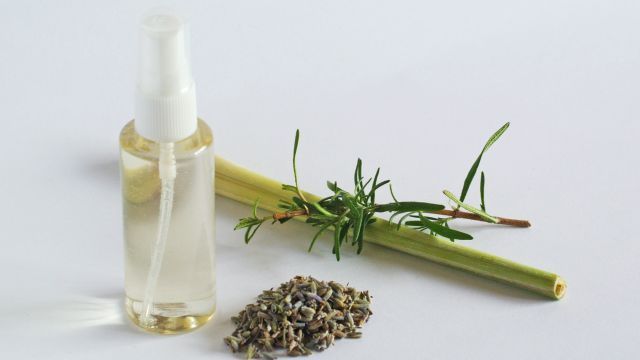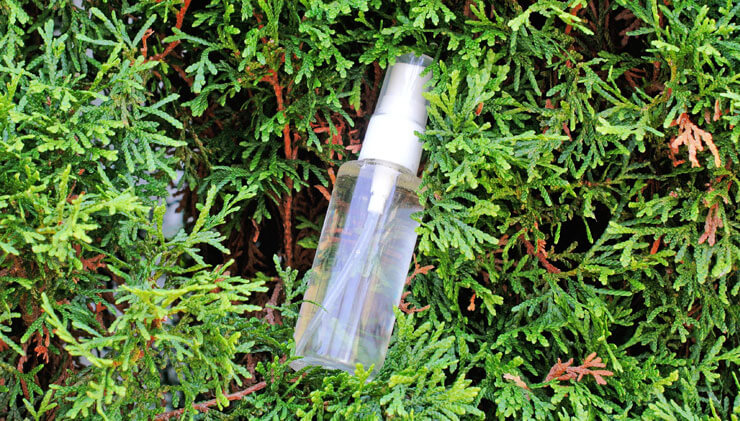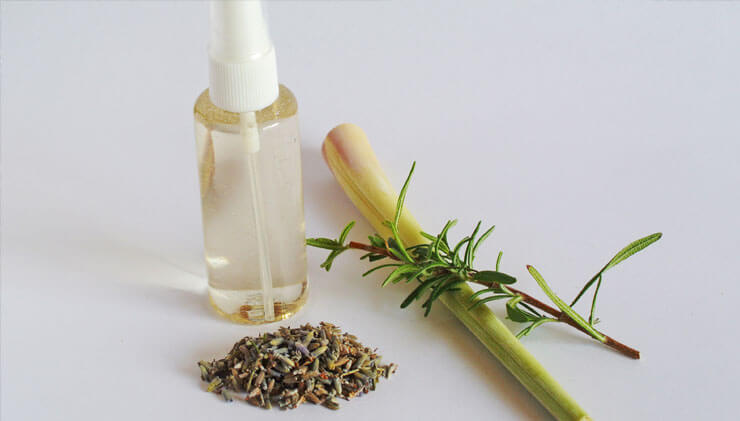
Backcountry camping, something which is a major part of my life, means that I often witness many incredible experiences — untouched trails, calm lake views and complete solitude. Although most moments seem like a dream, there’s also many moments that aren’t the most desirable.
You can often prepare for the weather, but there’s one thing that’s for certain, no matter how alert you are: you’re going to get chomped by a bug or two. While in Algonquin National Park in Ontario, Canada, we completed the most amazing portage trip — I mean, look at that view. No one around but us, wildlife and, of course, plenty of bugs.

We made a quick concoction at home so that we didn’t have to use bug spray that smells and tastes like death. So, whether you’re camping, playing at the beach, heading to your cabin, picnicking or venturing off to wherever your sense of adventure takes you, don’t forget this all-natural bug repellent.
Exclusive: How To Pack For Survival On Your Next Camping Trip
How to repel bugs naturally
We’re all familiar with DEET, a mosquito and bug repellent that is technically a pesticide — and a strong one at that. Loaded with toxic chemicals, you shouldn’t expose your skin to this spray, let alone breathe it in. Luckily, nature has your back, providing plenty of all-natural alternatives that actually work.
Although the recipe below includes a number of essential oils, I’d like to focus on one key ingredient that you may not think of as a bug repellent — lemongrass. With its authentic taste and smell, lemongrass has a vast history, providing a distinct and vibrant flavor profile, as well as medicinal benefits.
Being so yummy, you’d think that bugs would be attracted to its aroma, but lemongrass is actually closely related to citronella — a well-known bug repellent that’s often used in candles intended for outdoor use. When combined, these two oils work a treat.

Within one study, published in Phytomedicine, lemongrass oil was comparable to commercial mosquito repellent. Birds were exposed to two-day starved mosquitoes, experiencing more than 50 percent repellency, lasting two to three hours. Not bad for a repellent that actually contains skin-healing properties.
The same results were reported in another key study, concluding that although lemongrass was not as effective as DEET (51 percent efficiency versus 81 percent efficiency), it could most certainly be used as a replacement — especially for those who are sensitive to the chemicals used in commercial bug sprays.
When combined with other natural repellents, including citronella, clove, basil, rosemary and lavender, the efficiency is even greater. These plant species offer natural insecticides and/or repellents. Within lemongrass, for instance, effective compounds include citronellal, geraniol and alpha-pinene.
Homemade Bug Spray

When it comes to essential oils, the more you use, the stronger your spray will be. Here’s how to keep bugs away — naturally.
Ingredients
- Distilled water
- 1 tbsp natural witch hazel
- 1/2 tbsp apple cider vinegar
- 20 drops of organic lemongrass essential oil
- 15 drops of organic citronella essential oil
- 10 drops of organic rosemary essential oil
- 5 drops of organic lavender essential oil
- Vodka (optional)
Equipment
- Spray bottle
Instructions
1. Pour witch hazel and apple cider vinegar into your spray bottle, then fill to the top with distilled water.
2. Add essential oils and you’ll be ready to go. If you will not use all of this home remedy within a month or so, add 1/2 teaspoon of vodka — this will help to further preserve your bug spray.
— Krista Hillis

